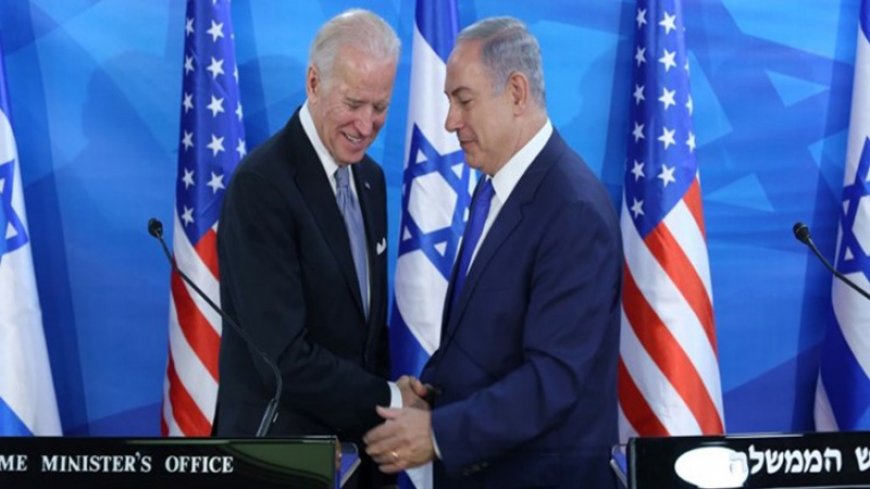U.S. Faces Criticism Amid Claims of Preventing War in West Asia While Supporting Israeli Military Actions

The United States, a major supplier of arms to Israel, has drawn accusations of hypocrisy as it simultaneously calls for peace in West Asia. While Washington claims to support de-escalation efforts in Gaza, critics argue that its ongoing military aid to Israel fuels conflict in the region, particularly in Lebanon and Gaza.
Over the years, the U.S. has provided Israel with extensive military support, including advanced weaponry, missiles, and financial aid. This support has been crucial in enabling Israel to carry out its military operations. In the most recent developments, Israeli forces have intensified their airstrikes on Gaza and Lebanon, leading to widespread destruction and civilian casualties.
Last Friday, Israeli forces launched an airstrike on the Hareh Harik neighborhood in Beirut, resulting in the death of several people, including Sayyid Hassan Nasrallah, the Secretary General of Hezbollah. The attack has heightened tensions in the region, with Hezbollah vowing retaliation. U.S. officials have acknowledged that American-made weapons, including guided bombs, were likely used in the attack.
Senator Mark Kelly, a senior member of the U.S. Senate Armed Services Committee, confirmed that Israeli forces used U.S.-made bombs in the attack. In a separate investigation, The Washington Post reported that the photos of the bombs used in Beirut indicate they were likely 2,000-pound bombs manufactured in the U.S.
Biden's Response and Criticism of U.S. Policy
Despite these actions, President Joe Biden has maintained that preventing an all-out war in the region is a priority for the U.S. However, critics argue that the U.S. administration’s stance is contradictory. During a press briefing, when asked about the possibility of a broader conflict in West Asia, Biden emphasized the need to prevent such a war but did not condemn Israel's actions.
Biden has promised to engage with Israeli Prime Minister Benjamin Netanyahu on the situation, stressing the importance of peace. However, no details have been provided on when or how this conversation will take place, leading to skepticism about the U.S.’s actual commitment to peace.
In his public statements, Biden has defended Israel's military actions, including the assassination of Nasrallah, describing it as an act of "justice." He stated, "Hezbollah, under Nasrallah's leadership, has been responsible for the deaths of thousands, including Americans, Israelis, and Lebanese, over four decades." This defense of Israel’s actions has sparked further backlash from regional leaders and human rights organizations.
Regional Reactions: Iran Condemns U.S. Involvement
Iran has been one of the most vocal critics of both Israel’s actions and the U.S.’s role in the conflict. Iranian President Masoud Pezeshkian condemned the killing of Nasrallah and accused Israel of disregarding international law. He stated that the U.S.’s continued support for Israel makes it complicit in the crimes carried out in Lebanon and Gaza.
Iran’s Foreign Minister, Sayyid Abbas Araghchi, also criticized the U.S., saying that it shares responsibility for the recent violence. "The United States cannot wash its hands of this crime," Araghchi remarked, emphasizing that U.S. arms and military assistance have enabled Israel’s ongoing aggression in the region.
Broader Context: U.S. and Israeli Relations in West Asia
The U.S.-Israel relationship has long been a cornerstone of American foreign policy in West Asia. The two nations share strong military, economic, and political ties. Washington views Israel as a critical ally in the region, particularly as a counterbalance to Iran's influence.
However, this close relationship has also led to criticism of the U.S.’s role in escalating tensions in West Asia. While the U.S. presents itself as a peace broker, its unwavering military support for Israel has made it difficult to be seen as an impartial actor in the region’s conflicts. The recent violence in Lebanon and Gaza, combined with Washington's continued arms sales, has raised concerns that the U.S. is exacerbating, rather than preventing, the potential for further war.













































